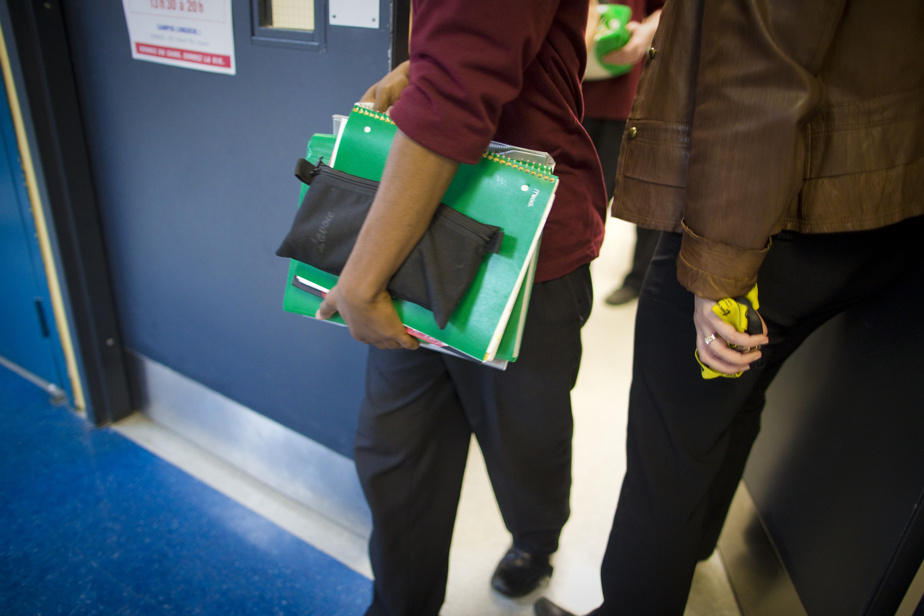Support staff in schools in Quebec report in a high proportion that they experience violence from students, both psychological and physical. There is a “trivialization” of violence, laments a special education technician.
• Data regarding violence experienced by support staff comes from a recent survey conducted by the Federation of Public Service Employees.
• Emotional abuse experienced by support staff is said to be even more prevalent than the survey shows.
• Education Minister Bernard Drainville announced at the end of March that he was preparing a national strategy to address violence in schools.
Alexandre (fictitious name) works in a large secondary school in Montreal. Since the beginning of the school year, he says, students have made more than one death threat to school staff on social networks.
“A student was arrested with a machete last week. Last year, we found a pellet gun in the boys’ locker room, ”illustrates the special education technician who fears reprisals if he testifies under his real name.
He is not the only one to experience violence in his workplace. Four in ten workers say they have experienced emotional abuse from students in the past six months, and 35% say they have experienced physical abuse, according to a recent survey conducted by the Federation of Public Service Employees ( FEESP-CSN).
Its members include school secretaries, daycare educators, student supervisors and special education technicians.
“We have more and more violence in our schools. Especially in special education, in daycare. The violence is extreme,” says Annie Charland, president of FEESP.
Psychological violence suffered by staff must be even more widespread than the survey shows, said Michel Picard, president of the Professional Association of Administrative Staff (APPA).
In the comments collected on the sidelines of the survey conducted by the FEESP, a daycare educator writes that when she has to “fill out a report of an act of violence against a child who [hits or insults], there is no nothing done by management.”
“You get the answer, ‘What’s the trigger?’ It ends there,” she wrote.
In late March, Education Minister Bernard Drainville said he was “extremely concerned” about violence in schools.
“We are preparing a strategy to fight against violence,” he said. I asked my teams to get back to me as soon as possible with this strategy,” he said.
Police are already present in some schools, he added.
It’s true, says the special education technician who spoke to La Presse. “We have community police at the school, but I think they have about 20 schools to serve. We don’t have a lot of support, they too are very overloaded, “says Alexandre.
The survey conducted by the union also shows that staff are psychologically exhausted. “I’ve never had so many people leaving. We have people with 25, 30 years [of experience] who are leaving, ”explains Annie Charland.
In the comments to the survey, a secretary from Montreal noted that her school had added “four new reception classes in the last few months” that take up a lot more time than regular classes.
“I can’t do my usual job with all this. I constantly get bothered,” she wrote.
Recent figures obtained by La Presse showed that the absenteeism rate of staff from school service centers in Quebec due to illness jumped 29% in 2021-2022 compared to 2014-2015.
However, those who “fall in battle” leave behind already overburdened people who find themselves with more on their shoulders. “It becomes a vicious cycle,” Ms. Charland said.
For Montreal’s school service center alone, 63% of respondents rated their work as “emotionally draining.” More than four in ten people have considered quitting their job in the last six months.

